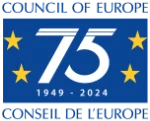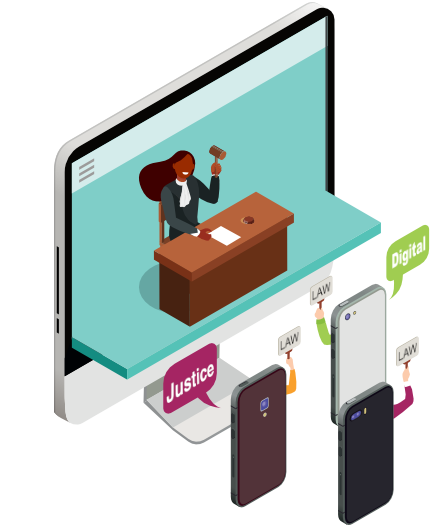
What is the objective of this hackathon?
The Council of Europe, in collaboration with the Institute of Legal Informatics and Judicial Systems of the National Research Council of Italy, and the University of Bologna, aims to involve students and researchers to harness technology for better human rights protection and contribute to raising awareness of judges, lawyers, and other legal professionals on the constantly evolving case law of the European Court of Human Rights.
.
Experience the Highlights of Digital Future of Justice 2.0
Winners!
The Justice Indexers
Italy
2nd place!
CaseConnect
Italy
CaseConect will facilitate a sophisticated segmentation of legal datasets, employing a semantically and legally structured methodology. Each section of the dataset will undergo a transformation into embedded representations, leveraging the BGE-M3 multilingual encoder to capture contextual and semantic nuances effectively. These embeddings, represented as semantically similar vectors, will enable precise matching and retrieval capabilities. Upon a user’s query, the input will similarly be encoded into a vector using the same model and evaluated against the stored embeddings through advanced similarity measures, such as cosine similarity. The system will provide the user with the identification of the cases most pertinent to their query. In addition, we would like to implement the retrieval of the most relevant section of the case (facts of the case) matching with the search of the user. This will be valuable for the user to compare the different cases with similar facts.
and two 3rd places!
AIRo
Romania

The proposed system is designed to align with the human-centred nature of legal practice, prioritizing accessibility and ease of use. Legal professionals engage with tools not as engineers but as interpreters, and the system must bridge the gap between its technical sophistication and practical application. Central to this approach is a visualization tool that simplifies data representation.
MapMyJustice
France

Our AI-powered platform optimizes legal case retrieval and visualization by standardizing case data into a unified, multilingual JSON format, extracting key metadata and facts, and generating vector embeddings for semantic search. This allows users to efficiently find relevant cases based on their input and filter by criteria like jurisdiction and case type. Furthermore, the platform provides an interactive 3D map, visualizing case similarity based on factual closeness, with color-coded countries and zoom/click functionality for detailed exploration.
Watch all of the photos of the event here.
How To Prepare For The Challenge

Contribute to Digital Transformation of Justice
Put your skills to the test together with your team and experts of the
Council of Europe!

Use Creativity & Code
During the event in Bologna, use your creativity and work on developing digital solutions to foster human rights approach in justice

Make Human Rights Closer
People all over Europe are waiting for your contributions! Come along this 15 to 17 of November and be part of this challenge!
Get Ready With Your Team For The Live Event
Teams hailing from various corners of Europe will engage in an intense competition aimed at transforming justice through the utilisation of digital technology. This live hackathon will certainly boost innovation by involving students and researchers to facilitate the pursuit of a more human rights-based justice system for all.
MAX of Teams
Participants of several countries
Mentors
Ask us anything
When in doubt, is better to ask! Please read the T&C
Warm-up Online Sessions
Warm-up online session #1
This online session features presentations from:
– Daniela Cavallini, Associate Professor at the University of Bologna
– Marco Fabri, Research Director at the Institute of Legal Informatics and Judicial Systems of the National Research Council of Italy
– Elena Yurkina, Head of Unit for Innovative Solutions at the Council of Europe
– Laetitia Dimanche, Project Officer at the Council of Europe
Warm-up online session #2
Tigran Karapetyan, a key organizer from the Council of Europe, welcomes you and outlines the exciting challenge ahead: combining the expertise of IT students and lawyers to create innovative solutions for human rights.
Dr Carlo Tovo, a researcher in EU Law at the University of Bologna, who provides an introduction to the decision structure and drafting process of the Court of Justice of the European Union.
Thomas Lampert, Professor and Chair of Artificial Intelligence and Data Science at the University of Strasbourg, shares valuable insights on building successful teams and maximizing individual strengths for impactful projects.
Schnutz Dürr, Head of Programming at the Council of Europe, introduces the Venice Commission dataset, which covers key constitutional matters such as institution building, human rights, and legislation.
Event Agenda
Get ready from the 15 to the 17 of November to participate in this Amazing event!
Day 1
18:30 – Registration of participants
19:45 – Welcome Dinner
Day 2
8:30 – Registration Desk
9:30 – Welcome And Introduction
10:40 – Open Tables for Discussion
11:30 – PRESENTATION European data
12:30 – Lunch
13:30 – Start of the hacking!
19:00 – Dinner
20:00 – Closing Day 1
Day 3
9:00 – Registration Desk
9:30 – Teamwork With Mentors
9:30 – Workshop
12:30 – Lunch
15:00 – Demo Presentations
18:00 – Winners announcement
18:30 – Cocktail reception & networking
20:00 – Closing of the Hackathon!
Warm-up Virtual Sessions
Live sessions will be organised before the main event to help you get ready!
Warm-up Session #1
23 October @ 17:30 CET
This welcome session is dedicated to the overall idea of the Hackathon and its challenge
Warm-up Session #2
29 October @ 17:00 CET
In this session, we will speak on the structure of judicial decisions and the dataset for the Hackathon
Warm-up Session #3
4 November @ 17:00 CET
In this session, we will speak about practical arrangements for the Hackathon participants
Register for the Digital Future of Justice in Bologna are now closed!
Registrations close on 15 October
Frequently Asked Questions
Do I have to pay for this event?
No, the event is free of charge for the teams selected for participation in this Hackathon. In addition to that, all essential expenses related to their participation (travel, accommodation, meals) are covered by the Organisers.
Where is the event going to take place?
The event will take place in Bologna, Italy! Venue will be confirmed soon!
What are the prizes for the winners?
The prize pool will be announced soon!
Should I bring my laptop?
Every participating team will be provided with one standard workstation containing a PC. You are, however, encouraged to bring your own laptops for a more comfortable experience.
Will the accommodation be included?
Yes, the accommodation for all participants is arranged and covered by the Organisers.
Where are we staying?
All participants will be placed in hotels in a walking distance from the Hackathon venue. You will be informed of your hotel booking details via email in due course.
MENTORS
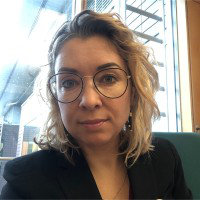
Elena Yurkina
Head of Unit Innovative Solutions for Human Rights and Justice, Council of Europe
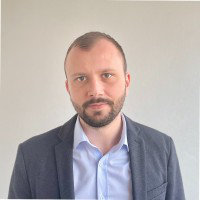
Cosmin Sterea-Grossu
Judge, Head of IT, Romanian Superior Council of Magistracy

Amaury Fouret
Data Scientist, Cour de cassation (Court of cassation), France

Flora Kopelou
European data, data.europa.eu, European Union

Øystein Flø Baste
Doctoral Researcher in Law, University of Oslo, Norway

Jack Mumford
Research Associate in Artificial Intelligence and Law, University of Liverpool (UK)

Grigory Dikov
Senior Legal Advisor, European Court of Human Rights
JURY MEMBERS
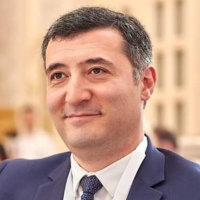
Tigran Karapetyan
Head of Division Transversal Challenges and Multilateral Projects, Council of Europe

Thomas Lampert
Chair of Artificial Intelligence and Data Science, Télécom Physique Strasbourg, France
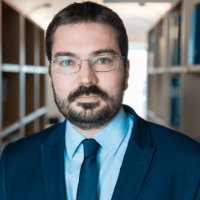
Edouard Rottier
Judge, Director of the Open data project, Cour de cassation (Court of cassation), France

Biljana Nikolic
Programme Manager, Innovative Solutions for Human Rights and Justice, DGI, Council of Europe

Murielle Popa-Fabre
Expert in Natural Language Processing (NLP), AI Policy and Governance and Generative AI, UN and Council of Europe

Olivier Chevet
Judge, Head of studies and research, IERDJ, France

Daniel Sollie
Public Prosecutor, Office of the Director of Public Prosecutions, Norway

Daniela Cavallini
Professoressa associata, Dipartimento di Scienze Politiche e Sociali, Settore scientifico disciplinare: GIUR-12/A Diritto processuale civile
